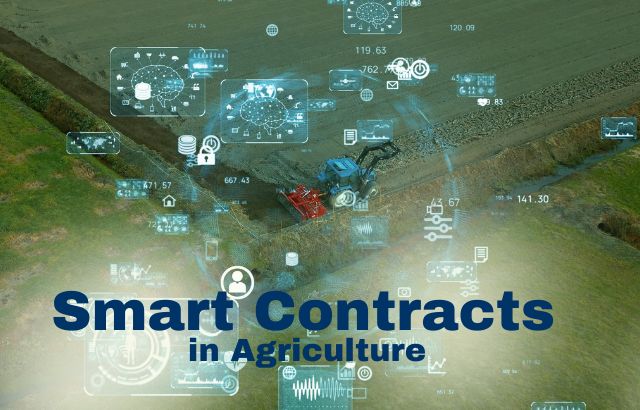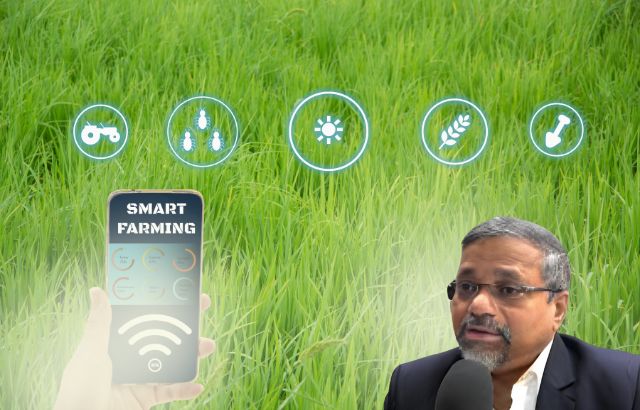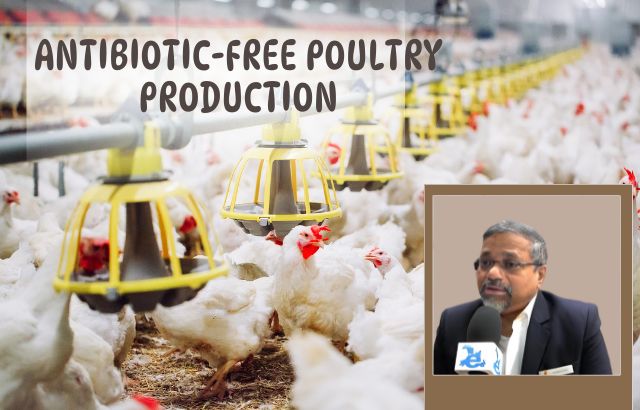As agriculture increasingly adopts digital solutions, smart contracts are emerging as a transformative tool within the industry. By automating and streamlining transactions, smart contracts can reduce costs, enhance efficiency, and foster trust among stakeholders. This blog explores what smart contracts are, their applications in agriculture, and the benefits they bring to farmers and the broader food supply chain.
What Are Smart Contracts?
Smart contracts are self-executing contracts with the terms of the agreement directly written into code. They operate on blockchain technology, ensuring that the contract executes automatically when predefined conditions are met. This eliminates the need for intermediaries, reduces the potential for disputes, and streamlines the entire process.
Applications of Smart Contracts in Agriculture
- Automated Payments
- Smart contracts can automate payment processes between farmers, distributors, and retailers. For example, a farmer can set up a smart contract that releases payment automatically once a delivery is confirmed, reducing administrative burdens and ensuring timely payments.
- Supply Chain Management
- In complex supply chains, smart contracts can track the movement of goods and ensure that all parties fulfill their obligations. If a shipment is delayed, the contract can trigger penalties or adjust payment terms automatically.
- Crop Insurance
- Smart contracts can simplify crop insurance claims. For instance, if weather data indicates a drought or flood that affects crop yields, the smart contract can automatically trigger payments to farmers without the need for lengthy claims processes.
- Quality Assurance
- Smart contracts can enforce quality standards by linking payments to specific criteria. For example, a buyer could specify that payment is contingent on the delivery of organic produce meeting certain quality metrics, ensuring compliance without manual inspections.
- Traceability and Compliance
- By integrating smart contracts with blockchain, stakeholders can ensure that products meet regulatory requirements. For example, a smart contract could require proof of organic certification before processing a payment, enhancing compliance and reducing fraud.
Benefits of Smart Contracts in Agriculture

- Cost Reduction
- By eliminating intermediaries and reducing the need for manual paperwork, smart contracts can significantly lower transaction costs. According to a study by the World Economic Forum, blockchain technology, including smart contracts, could reduce costs in supply chain management by up to 40%.
- Increased Efficiency
- Automated processes save time and reduce the likelihood of errors. Smart contracts execute transactions instantly once conditions are met, speeding up the entire supply chain.
- Enhanced Trust and Transparency
- Since smart contracts are executed on a transparent blockchain, all parties can verify the terms and conditions. This builds trust among stakeholders and reduces disputes over contract fulfillment.
- Improved Risk Management
- By automating processes like insurance claims, smart contracts can help farmers manage risks more effectively. Quick payments in times of need can provide financial stability and reduce stress during adverse conditions.
- Better Data Management
- Smart contracts can capture and store valuable data about transactions, crop yields, and market conditions. This data can be analyzed to inform better decision-making and optimize farming practices.
Real-World Examples
- AgriDigital
- This platform uses smart contracts to streamline grain trading. Farmers can receive immediate payment upon delivery, reducing the time spent waiting for payment processing.
- OriginTrail
- OriginTrail uses smart contracts to enhance traceability in the supply chain. Their platform allows stakeholders to verify product authenticity and compliance with quality standards through automated checks.
- CropInsurance
- Some startups are developing smart contracts specifically for crop insurance, enabling automated payouts based on weather data. This reduces the administrative burden on farmers and ensures timely financial support.
Challenges and Considerations

While smart contracts offer significant advantages, there are challenges to consider:
- Technological Barriers: Farmers may need training to understand and implement smart contracts effectively.
- Initial Setup Costs: Implementing smart contracts may require upfront investment in technology and infrastructure.
- Regulatory Uncertainty: As the technology is relatively new, regulations surrounding smart contracts are still evolving, which may create uncertainty for users.
Conclusion
Smart contracts represent a promising innovation in agriculture, offering a way to streamline transactions, reduce costs, and enhance efficiency throughout the supply chain. By automating processes and fostering transparency, smart contracts can help farmers focus on what they do best—growing high-quality food—while reducing the administrative burdens that often accompany traditional transactions.
As the agricultural sector continues to embrace digital transformation, smart contracts will play a vital role in shaping the future of farming, making it more resilient, efficient, and sustainable. Embracing this technology is not just an option; it’s a necessary step toward a more efficient agricultural landscape.













